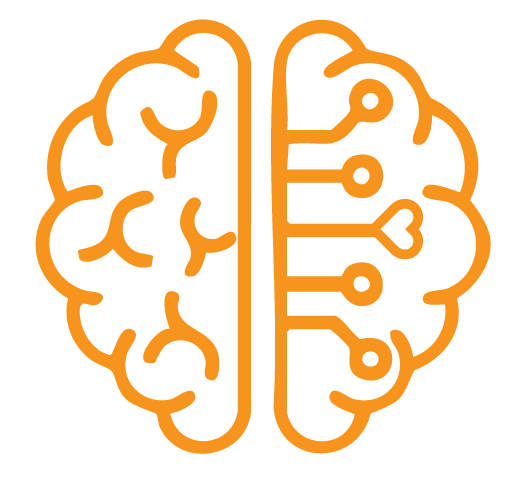AI Experience Design (AIX)
Designing the relationship between humans and intelligent AI systems not just the tools, buttons, or screens they use


AI Experience Design (AIX)
Designing the relationships between humans and intelligent AI systems not just the tools, buttons, or screens they use
From internal tools to customer-facing experiences, AI is now making decisions, offering suggestions, and shaping outcomes across your business. But while the technology is advancing rapidly, the human experience of AI hasn’t kept pace.
That’s where AIX (AI Experience Design) comes in.
AIX is the practice of designing the relationship between humans and intelligent systems—not just the screens or features they use.
We’ve entered the era of AI business transformation, and no business can fully evolve without addressing how people will relate to the intelligence they’re building into their systems.
WHY AIX MATTERS
Engineering teams are shipping AI features rapidly, driven by breakthroughs in LLMs, generative tools, and automation—but experience design hasn’t been part of that loop.
We’re building intelligence into systems before we’ve defined how it should behave, communicate, or earn trust.
Much of AI implementation has been centered around what the system can do—generate a paragraph, predict a number, automate a task.
But little thought has been given to how that system makes people feel, or how users come to understand, question, or trust it.
UX EXPECTATIONS
Traditional systems are rule-based, predictable, and visible. AI systems, by contrast, are:
Subject to chance variation
Opaque
Adaptive (and sometimes inconsistent)
This creates cognitive dissonance: users expect consistency, but get unpredictability.
Without AIX, we don’t resolve that gap—we widen it.
People need more than functionality from AI—they need clarity, respect, boundaries, and emotional safety.
These aren’t “nice-to-haves.” They are core to adoption, trust, and retention. And yet… they’ve been treated as afterthoughts.

Building relationships with other smarties.
AIX Sessions is a comfortable, casual virtual gathering I host once a month at no charge for senior-level community professionals across the country. I designed it as a free, small group, no-sales event where people can relax, relate and get real about the challenges and rewards of customer communities.
CAN WE REALLY BUILD A RELATIONSHIP WITH AI TECH??

“Our company is rapidly moving to implement AI solutions, but I’m concerned our users and my colleagues aren’t being considered in how these tools are being built and rolled out.”
– Chief Technology Officer, Mid-size tech firm
AIX CORE PRINCIPLES
Build systems that don’t just work but also connect. Map emotional states, trust signals, and behavioral arcs the same way you map feature flows. Focus on what the user is really trying to accomplish—not just what they click or type. AIX helps systems align with human goals, even when those goals are messy, evolving, or implicit.
Trust is built in the small, consistent moments where AI behaves reliably, responds with emotional intelligence, and respects the user’s intent. These micro-moments matter as much as major decisions—because they shape how safe, seen, and understood people feel. And at the heart of it all is ethics—not as a nice-to-have, but as a core design principle that guides not just what AI can do, but what it chooses to do.
AI should augment, not replace. The best AI experiences still depend on distinctly human strengths—storytelling, emotional intelligence, and meaningful feedback from real communities. Smart systems must adapt to people in the moment, shifting tone, pace, and complexity to meet users where they are, not where a persona says they should be.
Not all friction is bad—especially when it supports learning, reflection, or skill development. AIX designs intentional pauses that don’t just speed up tasks, but strengthen understanding. Like an AI that helps a student learn the concept—not just hand over the answer.
Intelligent systems shouldn’t just deliver output—they should think alongside users. Like a well-designed cockpit or car seat, great AI adapts to individual needs: language, context, prior knowledge, even emotional state. When systems become creative and critical partners, they empower people to think bigger, move faster, and trust more deeply.
How users feel after an AI interaction isn’t just a soft signal—it’s a powerful predictor of trust, loyalty, and long-term value. Emotion should be tracked, designed for, and prioritized alongside accuracy and efficiency. If you’re not measuring how it feels, you’re not measuring the full experience.
Why do we need AIX if we already have UX and product design?
UX focuses on usability: how the interface or screens or buttons work. AIX focuses on relational behavior—how the system behaves, how people feel about it, and how trust is built over time.
Where does AIX fit in my AI business transformation?
Just like UX was critical to digital transformation, AIX is essential to AI transformation.
AIX connects across your roadmap:
AI & automation strategy → AIX makes it usable
Data & models → AIX makes them understandable
Ethics & governance → AIX makes them trustworthy
Customer experience → AIX makes it feel human
Is AIX just another name for Responsible AI or Ethical AI?
No—AIX complements those efforts. Responsible AI focuses on what AI should do; AIX focuses on how people experience what it does.
Who is AIX for?
Product managers, designers, researchers, AI engineers, and business leaders—anyone shaping how intelligent systems show up in people’s lives.
Can small teams or startups use AIX, or is it just for big companies?
Absolutely. Everyone and anyone working on building AIX tools and experiences, regardless of company size should be embracing the AIX principles. AIX scales—whether you’re building a scrappy MVP or an enterprise-grade system.
What kinds of intelligent AI systems benefit from AIX?
Any AI that makes decisions, adapts, communicates, or influences—chatbots, recommendations, predictive tools, agents, copilots, and beyond. So basically… anything that brings intelligent AI systems together with humans.
What does it mean to “design a relationship” with AI?
It means shaping how users perceive, trust, and collaborate with AI over time—not just what the system outputs, but how it behaves.
How is AIX different from UX for chatbots or voice interfaces?
AIX goes beyond the interface to address tone, behavior, explainability, and emotional impact—especially when AI feels to the user like it’s “thinking” or “deciding.”
What happens if we ignore AIX?
You risk poor adoption, mistrust, emotional backlash, bad data, legal exposure, and a fractured product experience.
Is AIX just about customer-facing experiences?
No—AIX applies just as much to internal tools. If your employees don’t trust or understand the AI, they won’t use it well (or at all). This isn’t about silos, it’s about the collaboration of intelligent AI systems and humans.
What makes AIX different from everything else out there?
Most frameworks focus on what AI does. AIX focuses on how it feels to use—because that’s where trust, adoption, and impact really live.
SERVICE OFFERINGS
AIX STRATEGY & DISCOVERY
Set the foundation for AIX across your organization
This offering helps you understand what AIX is, where your current AI experiences fall short, and how to begin designing intelligent systems that build trust and adoption.
Includes:
AIX Discovery Sprint (1 day workshop)
Current-state AI experience audit
Stakeholder interviews or alignment sessions
High-level experience gap map
Prioritized AIX opportunity roadmap
Ideal for: product leaders, heads of design, or digital transformation teams just beginning to integrate AI
AIX DESIGN & IMPLEMENTATION SUPPORT
Bring AIX principles to life inside your product and team workflows
We work directly with your cross-functional team to build better human-AI interactions, tone strategies, friction points, and feedback loops—aligned to your brand, goals, and systems.
Includes:
Trust & tone design strategy
Emotional journey mapping
Good friction and system behavior design
AIX integration planning and team playbook
Cross-functional collaboration sessions
Ideal for: teams actively building or shipping AI-powered features and tools
EXECUTIVE ADVISING & TRANSFORMATION COACHING
Keep the human layer front and center in your AI roadmap
Ongoing advisory and strategic support for senior leaders navigating AI transformation—with a focus on experience quality, ethical alignment, and long-term value.
Includes:
1:1 executive advising sessions
AI transformation strategy reviews
Team coaching and workshop facilitation
Ethical and relational risk reviews
Thought partnership and executive communications
Ideal for: C-suite, heads of product, heads of experience/AI, or transformation leader
Hi! I’m Jake McKee, the original Community Guy. Going all the way back to 1996, I’ve played an instrumental role in building online communities and Community Driven Product Development programs for some of the world’s most successful and recognizable brands, including LEGO, Apple, Southwest Airlines, Canon, and H&R Block.
I consult with organizations of all sizes to help solve community and business challenges of all kinds. I’ve co-authored books on social media and community strategy and spoken to and run workshops for audiences of business professionals countless times. I created CX 5essions, a community project that connects senior-level online professionals every month for conversation, connection, and camaraderie. As if that’s not enough community nerdery, I also created a web comic about community management, Confessions of a Community Manager.
